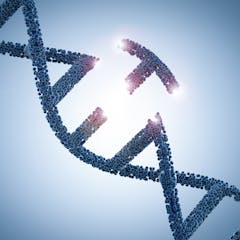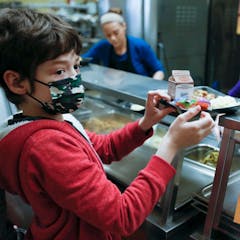
Articles on Health disparities
Displaying 1 - 20 of 125 articles

After a group of employers refused to provide their employees access to free HIV prevention treatment, the Supreme Court may decide whether insurers are required to fully cover preventive care.

Doctor shortages affect rural communities the most, leading to a rise in chronic health conditions.

Healthy diet and regular exercise are key to treating obesity. But the stress of everyday racism and sexism hinder Black women from adopting lifestyle changes necessary for weight loss.

Cardiovascular disease develops and presents differently in women and men. But medical guidelines are often based on studies that excluded women.

PrEP can reduce the risk of sexually transmitted HIV infection by 99%. Discrimination and distrust are two barriers Black gay men face in accessing this lifesaving treatment.

Patients often bear the cost of unexpected bills for basic preventive services such as wellness visits and cancer screenings.

Which is riskier for your health: a few days of very bad PM₂.₅ exposure or many more days of slightly bad exposure? Researchers developed new metrics to provide better answers.

Researchers found that nearly 74% of patients who reached out about a billing mistake received bill corrections. For those who negotiated their bills, nearly 62% saw a price drop.

In the absence of clear-cut regulation, who should decide on where and how a technology that could change the course of human health should be applied?

Increased mistrust of the US medical profession and higher mortality rates are consequences of the low numbers of Black doctors. A massive gift to Black medical colleges may help build those numbers.

Less sleep and later bedtimes are linked to a section of the brain involved in emotion regulation suffering reduced growth, along with weaker connections to other brain areas.

Increased mistrust of the US medical profession and higher mortality rates are two consequences of the lack of Black doctors.

Drinking alcohol is normalized in American society. But the ubiquity of alcohol consumption hides its serious health risks, including cancer.

Colon cancer is curable when caught early, but some insurers are either refusing to cover or significantly delaying approval for colonoscopies.

Stigma, fear and cost prevent many patients from getting screened for lung cancer. This can prove deadly for the most vulnerable.

Many Black patients experience stark differences in how they’re treated during medical interactions compared to white patients.

Since nutrition standards were strengthened in 2010, eating at school provides many students with healthier food than is available cheaply elsewhere. Plus, reducing stigma increases the number of kids getting fed.

Early modern societies in Latin America and Spain saw a convergence of traditional medical knowledge and the professionalization of medicine. The resulting differences in access to care endure today.

IVF is a decades-old procedure that has allowed increasing numbers of prospective parents to have children. Evolving legislation may put it under threat.

People with low-risk prostate cancer are more likely to die from something else. Overdiagnosis and overtreatment can lead to life-changing complications.
